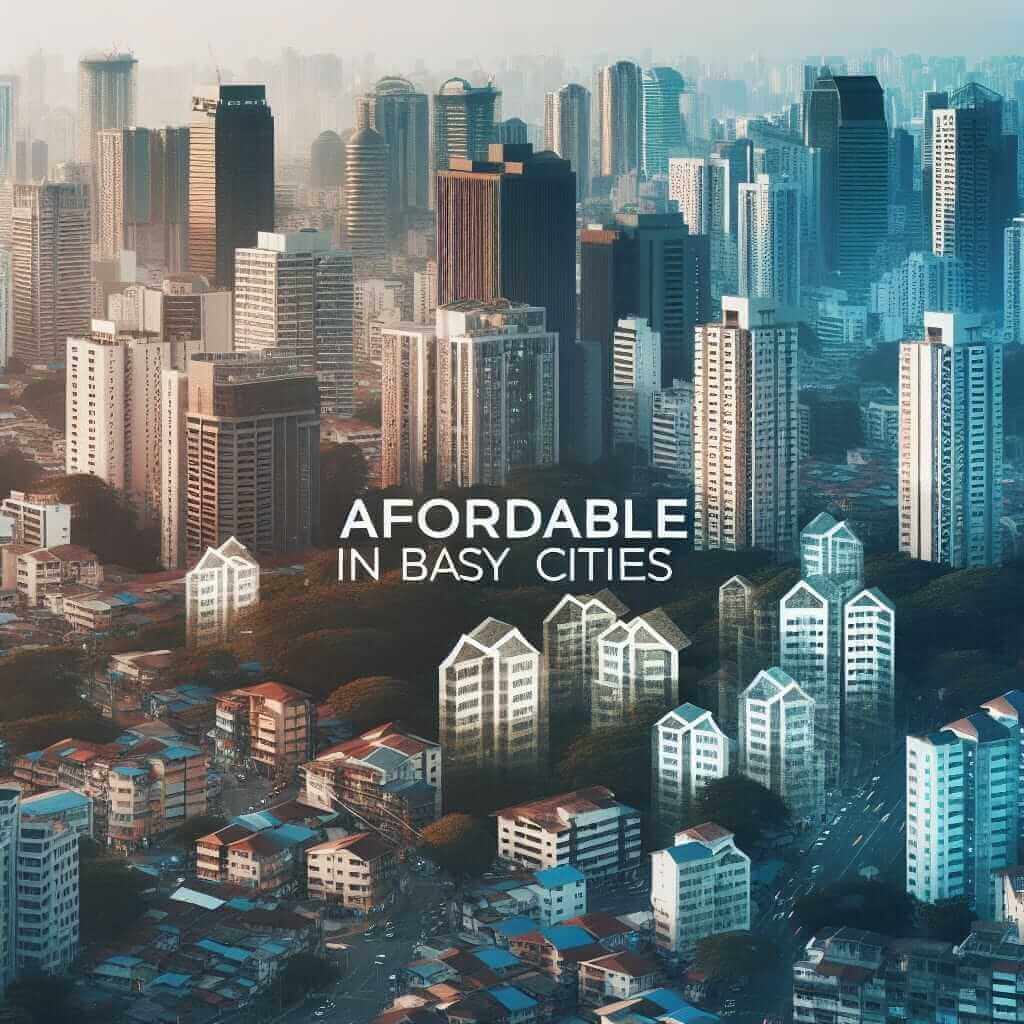The issue of affordable housing in urban areas is a topic that frequently appears in IELTS Writing Task 2. Understanding the gravity and scope of this subject is essential for candidates aiming for high bands. In this article, we will create a few possible IELTS Writing Task 2 sample questions related to this topic, select one to develop a complete model essay, and analyze it in terms of grammar, vocabulary, and key points.
Possible IELTS Writing Task 2 Questions:
- Increasing urbanization has led to a shortage of affordable housing in many cities. What are the causes of this problem, and how can it be addressed?
- To what extent do you agree or disagree that governments should be responsible for providing affordable housing in urban areas?
- Discuss the effects of a lack of affordable housing on both individuals and society in urban settings. Include any measures that could improve the situation.
Chosen Essay Prompt:
Increasing urbanization has led to a shortage of affordable housing in many cities. What are the causes of this problem, and how can it be addressed?
Analyzing The Prompt:
The chosen prompt directs us to identify and discuss the causes of the shortage of affordable housing in urban areas due to increasing urbanization. Moreover, it requires us to suggest potential solutions to the problem. Structuring this essay involves discussing the causes in one section and the solutions in another.
Model Essay
Urbanization has become a defining feature of modern societies, bringing with it myriad benefits such as economic opportunities and enhanced living standards. However, a significant downside to rapid urbanization is the alarming shortage of affordable housing in many metropolitan areas. This essay aims to elucidate the primary causes of this issue and propose viable solutions.
Causes of the Shortage of Affordable Housing
The first major cause is the escalating population in urban centers. As more people migrate to cities in search of better job prospects and living conditions, the demand for housing surges dramatically. This ballooning demand consequently leads to higher property prices and rents, making affordable housing scarce.
Another contributing factor is the limited availability of land in densely populated cities. Urban areas are often characterized by geographic constraints and a finite supply of land suitable for development. This scarcity drives up land prices and discourages the construction of low-cost housing options. Additionally, the regulatory environment can often hinder the development of affordable housing. Zoning laws and building regulations, while important for ensuring safety and standardization, can add layers of complexity and cost to housing projects, further limiting affordable housing supplies.
Solutions to Address the Problem
One effective solution could be the implementation of government policies that encourage the development of affordable housing. Governments can offer incentives such as tax breaks and subsidies to developers who prioritize low-cost housing projects. For instance, in some cities, developers receive benefits if a certain percentage of their projects is dedicated to affordable units.
Another solution involves the relaxation of zoning laws and building regulations. By simplifying these requirements, governments can reduce the bureaucratic and financial burden on developers, making it more feasible to construct affordable housing. Moreover, public-private partnerships can also play a crucial role. Cooperation between government bodies and private developers can result in shared resources and risks, facilitating the initiation and completion of affordable housing projects.
Lastly, rehabilitation and better utilization of existing urban spaces can provide immediate relief. Vacant buildings and under-used spaces can be repurposed into affordable housing units. Urban renewal initiatives that focus on transforming these areas can effectively contribute to solving the housing crisis without the need for extensive new land usage.
In conclusion, the shortage of affordable housing in urban areas, driven by factors such as population growth, land scarcity, and stringent regulations, is a significant issue that necessitates comprehensive solutions. Government incentives, regulatory relaxations, public-private partnerships, and better use of existing spaces are all strategies that, if effectively implemented, can mitigate this problem and ensure that urbanization continues to benefit all segments of the population.
Word Count: 421

Key Points When Writing About This Topic
- Clear Structure: Ensure your essay has a clear introduction, body paragraphs for causes, and body paragraphs for solutions, concluding with a summary.
- Vocabulary: Use academic and topic-specific vocabulary related to urbanization and housing, such as “surge,” “incentives,” “finite supply,” and “public-private partnerships.”
- Grammar: Maintain varied sentence structures, using both simple and complex sentences to convey your points clearly and efficiently.
Difficult Vocabulary to Remember:
- Urbanization (n) /ˌɜːbənaɪˈzeɪʃən/: The process through which cities grow, and higher population shifts from rural to urban areas.
- Metropolitan (adj) /ˌmetrəˈpɒlɪtən/: Relating to a large city or metropolis.
- Escalating (adj) /ˈeskəleɪtɪŋ/: Increasing rapidly.
- Geographic Constraints (n) /ˌʤiːəˈgræfɪk kənˈstreɪnts/: Natural or imposed limitations on the development of land.
- Zoning Laws (n) /ˈzəʊnɪŋ lɔːz/: Legal restrictions and regulations concerning the use of land and the placement of structures.
- Subsidies (n) /ˈsʌbsɪdiz/: Financial assistance granted by the government to encourage specific activities.
- Bureaucratic (adj) /ˌbjʊərəˈkrætɪk/: Relating to the business of running an organization or government, often with many complex rules and procedures.
- Rehabilitation (n) /ˌriːəˌbɪlɪˈteɪʃən/: The process of restoring something to its original state or making it suitable for use again.
- Feasible (adj) /ˈfiːzəbl/: Capable of being done or achieved; possible.
- Mitigate (v) /ˈmɪtɪgeɪt/: To make less severe or serious.
Conclusion
Affordable housing in urban areas is a critical issue that can manifest in IELTS writing tasks in various forms, from discussing causes and solutions to analyzing impacts. Practicing essays on this topic can substantially improve your ability to handle related questions effectively. Remember to integrate key vocabulary, maintain a clear essay structure, and delve deeply into both causes and solutions. For further practice, consider topics like the role of government investment in public services or urban planning’s contributions to sustainable development.
Ensure continuous practice with these themes for a comprehensive understanding and improved performance in your IELTS writing tasks.